
Introduction
On our test bench, today is the EVGA GeForce RTX 3080 Ti FTW3 ULTRA HYBRID GAMING (12G-P5-3968-KL) video card. Among the seven RTX 3080 Ti cards that EVGA offers, the FTW3 ULTRA HYBRID GAMING sports the fastest factory overclock that EVGA currently offers on the RTX 3080 Ti GPU. It is equipped with EVGA’s iCX3 cooling solution which includes three fans (one on the card, two on the radiator).
Over the past couple of weeks, the market conditions for RTX 30 Series GPUs has vastly improved, especially for the 3070 Ti, 3080, and 3080 Ti variants. We have been seeing this card go in and out of stock on EVGA’s website at $1429.99 as well as at other retailers. Unlike the last 2 years of reviews we’ve written, you’ve actually got a chance at buying this one.
In order to see where this GPU stands, we will compare it to the EVGA RTX 3080 Ti FTW3 ULTRA GAMING, the EVGA GEFORCE RTX 3080 12GB FTW3 ULTRA GAMING, and the ASUS TUF 6800 XT OC Edition.
EVGA GeForce RTX 3080 Ti FTW3 ULTRA HYBRID GAMING (12G-P5-3968-KL)
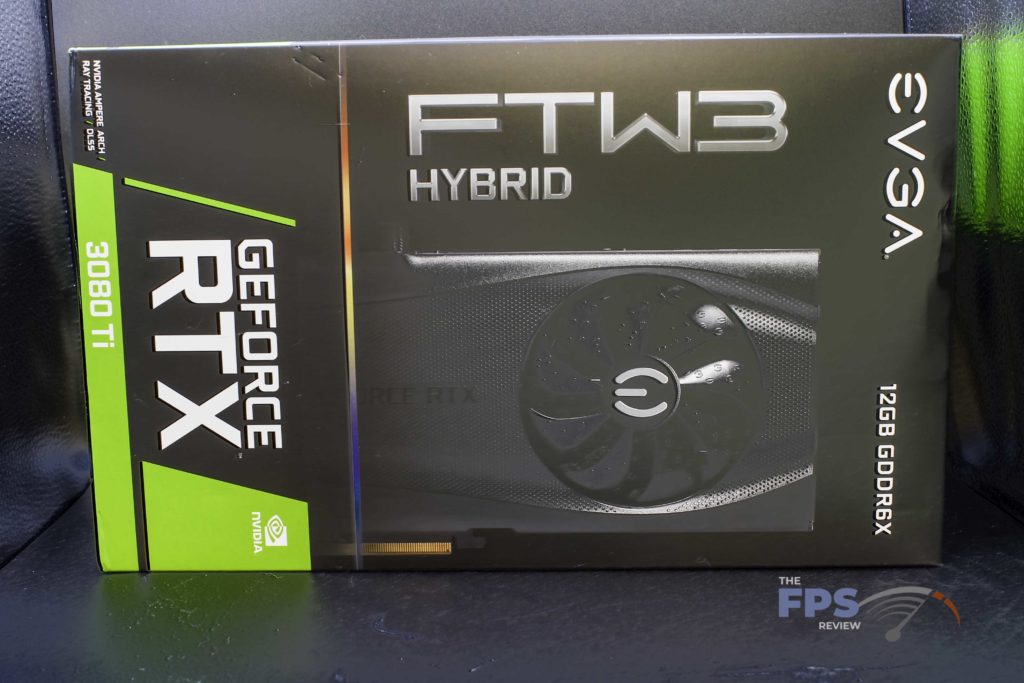
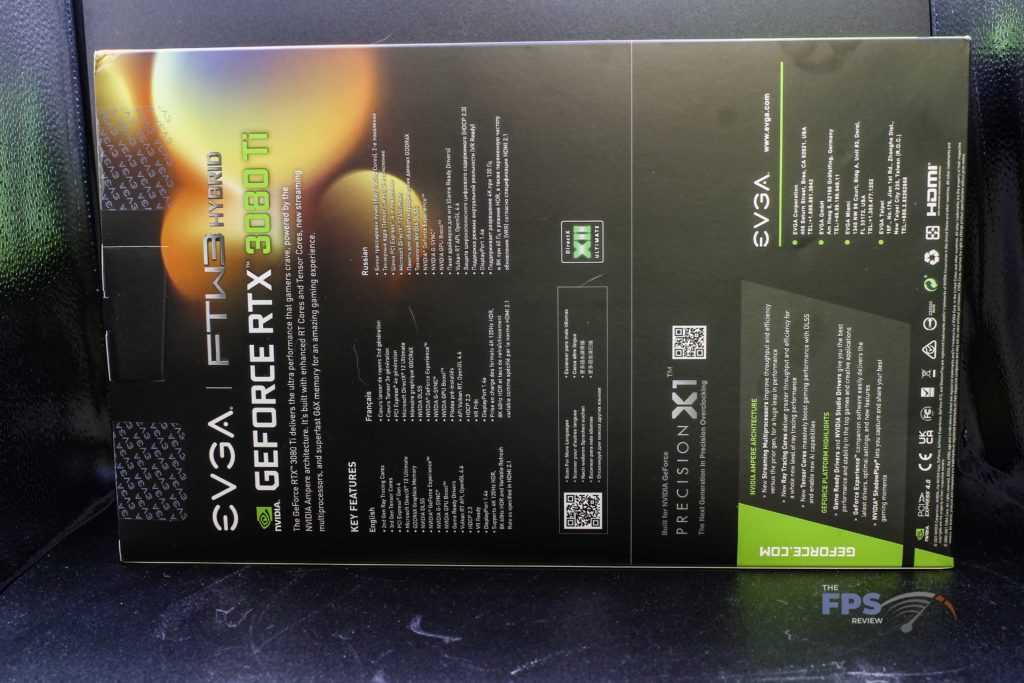
The EVGA GeForce RTX 3080 Ti FTW3 ULTRA HYBRID GAMING comes in a larger and more cubic video card box that identifies it as an RTX 3080 Ti FTW ULTRA HYBRID GAMING model from EVGA. Once we cracked open the box, we found a black-clad GPU with mostly black trim sporting a single fan in a slot fan configuration on the card and attached a 240mm radiator with two 120mm fans and a solid metal backplate. From a card-in-hand perspective, the HYBRID card is essentially the same size and same backplate as the air-cooled ULTRA GAMING card.
Specifications
EVGA has given the GeForce RTX 3080 Ti FTW3 ULTRA HYBRID GAMING a factory overclock of 135MHz on the boost clock, bringing it from the stock 1665MHz up to 1800MHz. Keep in mind that the boost clock is a target based on power, workload, and temperature and that value will typically be exceeded via the card’s boosting algorithm NVIDIA GPU Boost. It also sports 12GB of 19GHz GDDR6X memory that is equal in speed to the reference specifications. EVGA offers a 350W TGP on the card.
From a size perspective, it’s a large size card that’s no different in size than the other high-end 30 Series FTW3 cards from EVGA even though it’s wearing an AIO setup rig. Specifically, it is 11.4 inches long, 5.4 inches tall and 2 slots wide. For additional comparison, the GeForce RTX 3080 Ti Founders edition’s length is 11.2 inches long, 4.4 inches tall and 2 slots wide, so the EVGA video card is two-tenths of an inch longer, 1 inch taller, and the same number of slots wide.
EVGA iCX3 Cooling
EVGA is utilizing its iCX3 cooling setup but does not go into a ton of detail on how that is consistent with the air-cooled models that utilize the same iCX3 moniker. If it’s the same, then that consists of 3 HDB 2.0 noise motor fans with fan blades that have raised “E”s on them to reduce noise. The fans feature an asynchronous fan mode and will switch off when temperatures are under 55 degrees Celsius. The PCB features cutouts (along with the backplate having cutouts) to improve airflow and reduce exhaust recovery. EVGA claims a 5.1% improvement over the iCX2 cooling system while being 9.7% quieter.
Pictures and Information
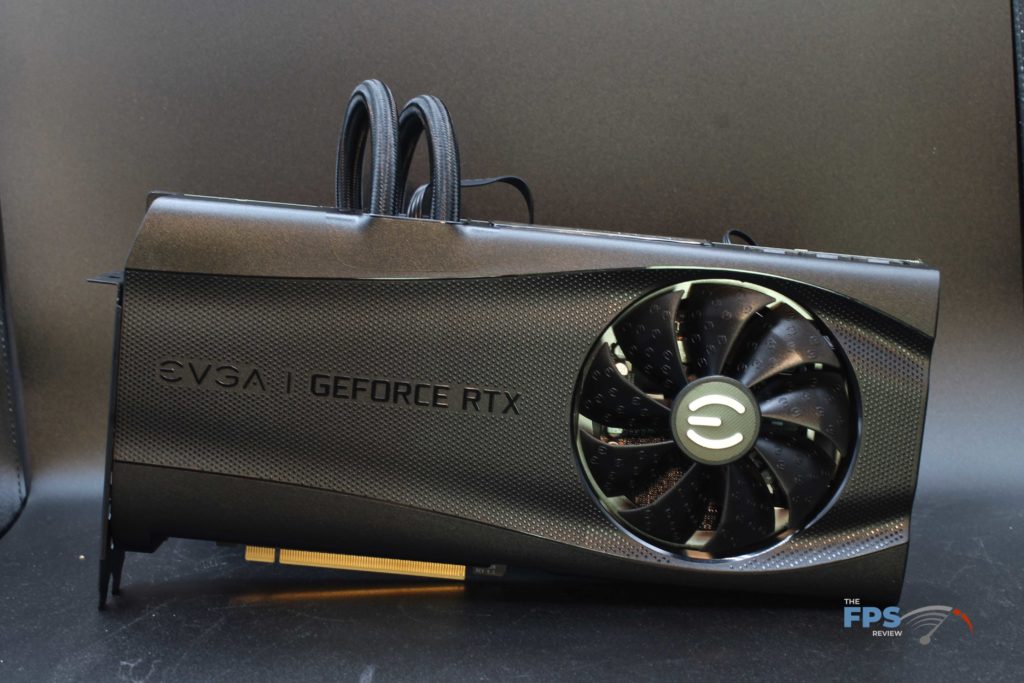
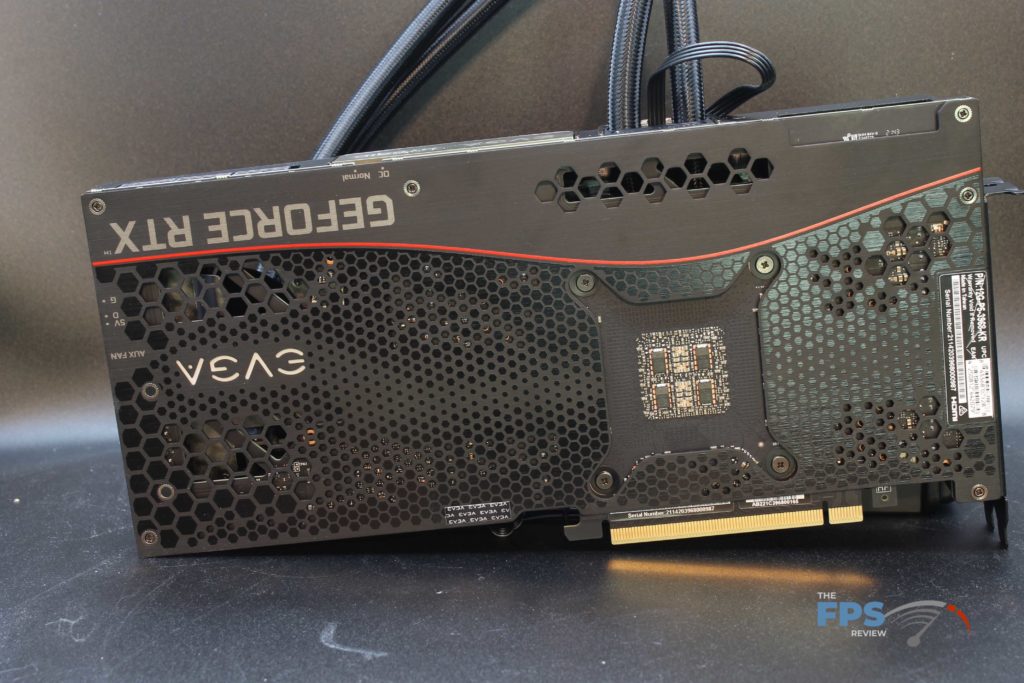
The front of the card features three fans in total and a 240mm radiator that has ARGB bling that will light the 120mm fans up. It’s a full two PCI-e slots wide and sports three Display Port 1.4a connections and one HDMI 2.0 connection.
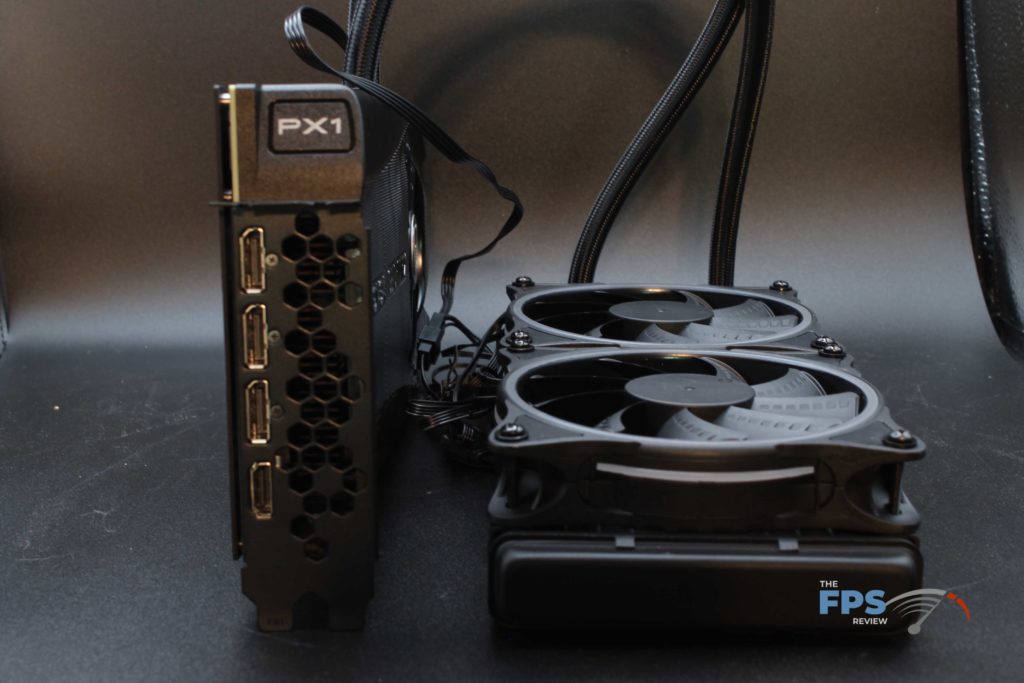
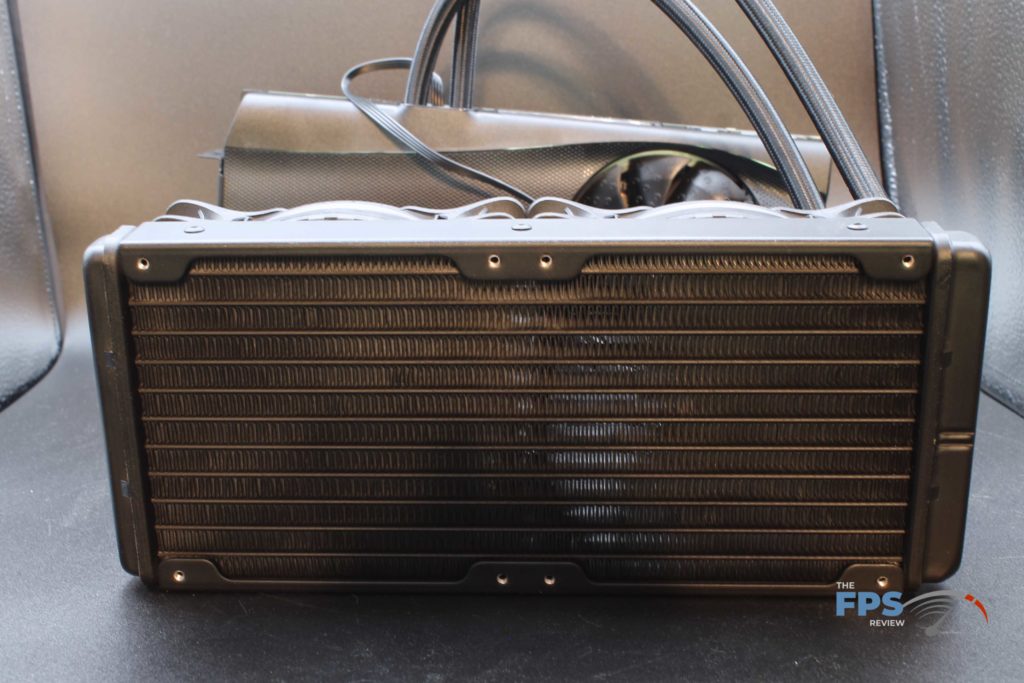
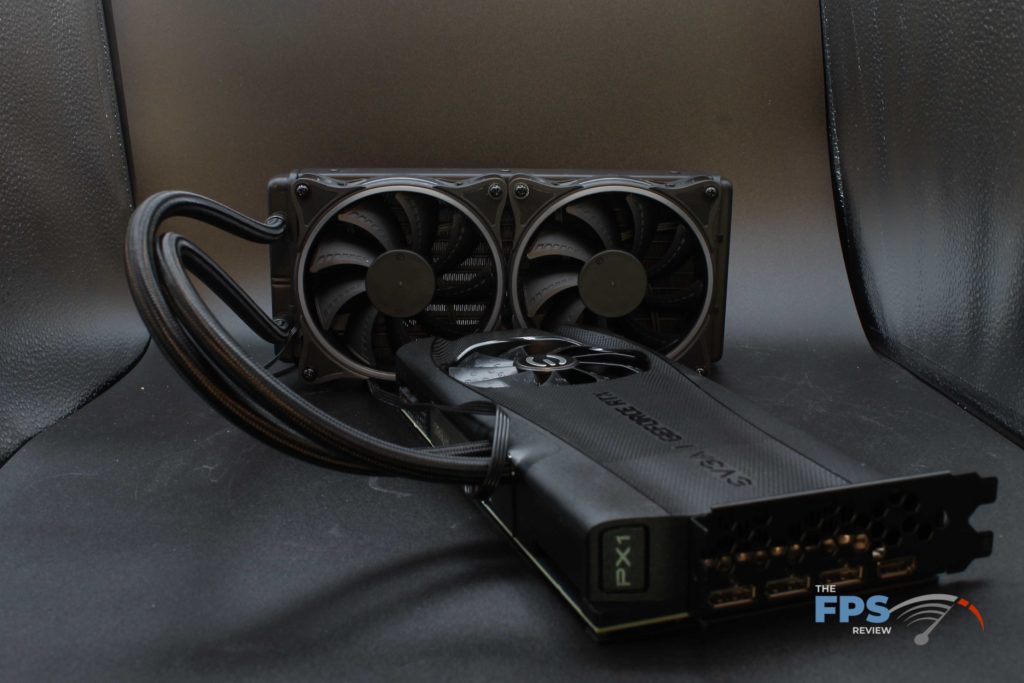
The EVGA GeForce RTX 3080 Ti FTW3 ULTRA HYBRID GAMING is equipped with a backplate to help further the distribution of heat.
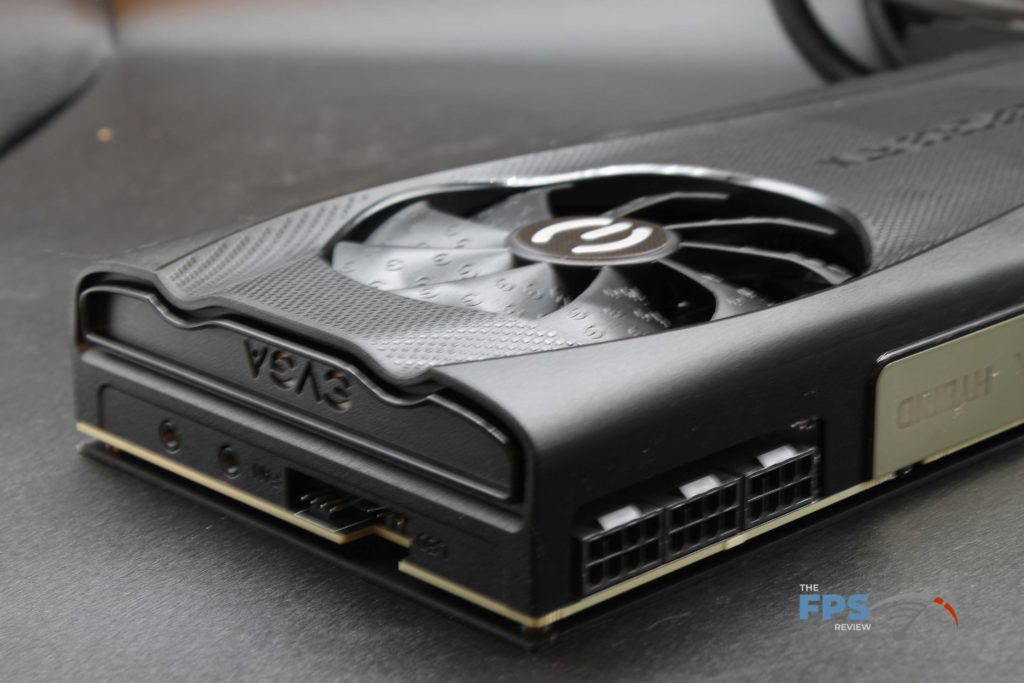
The video card requires three 8-pin PCI-Express power connectors. EVGA recommends a 750W Power Supply, so this is a beefy power requirement for this video card.
